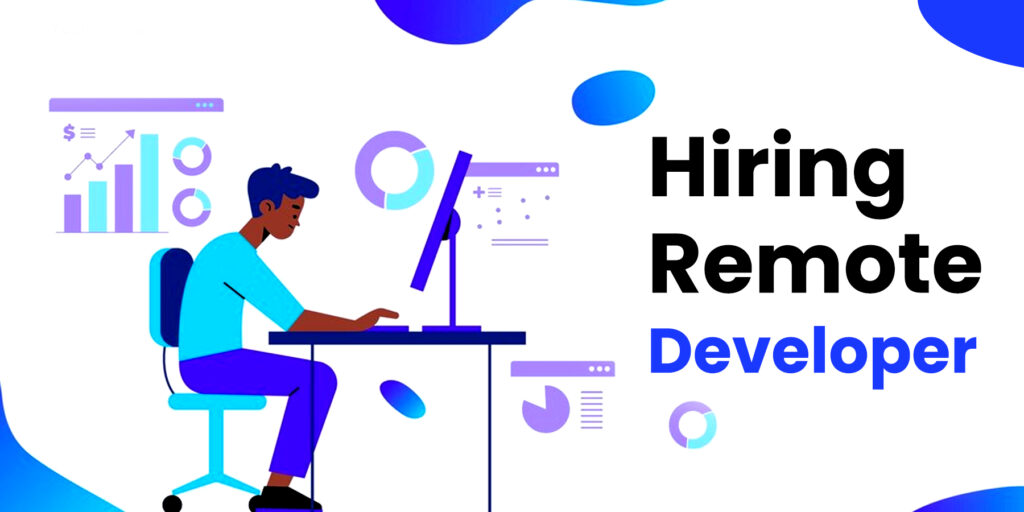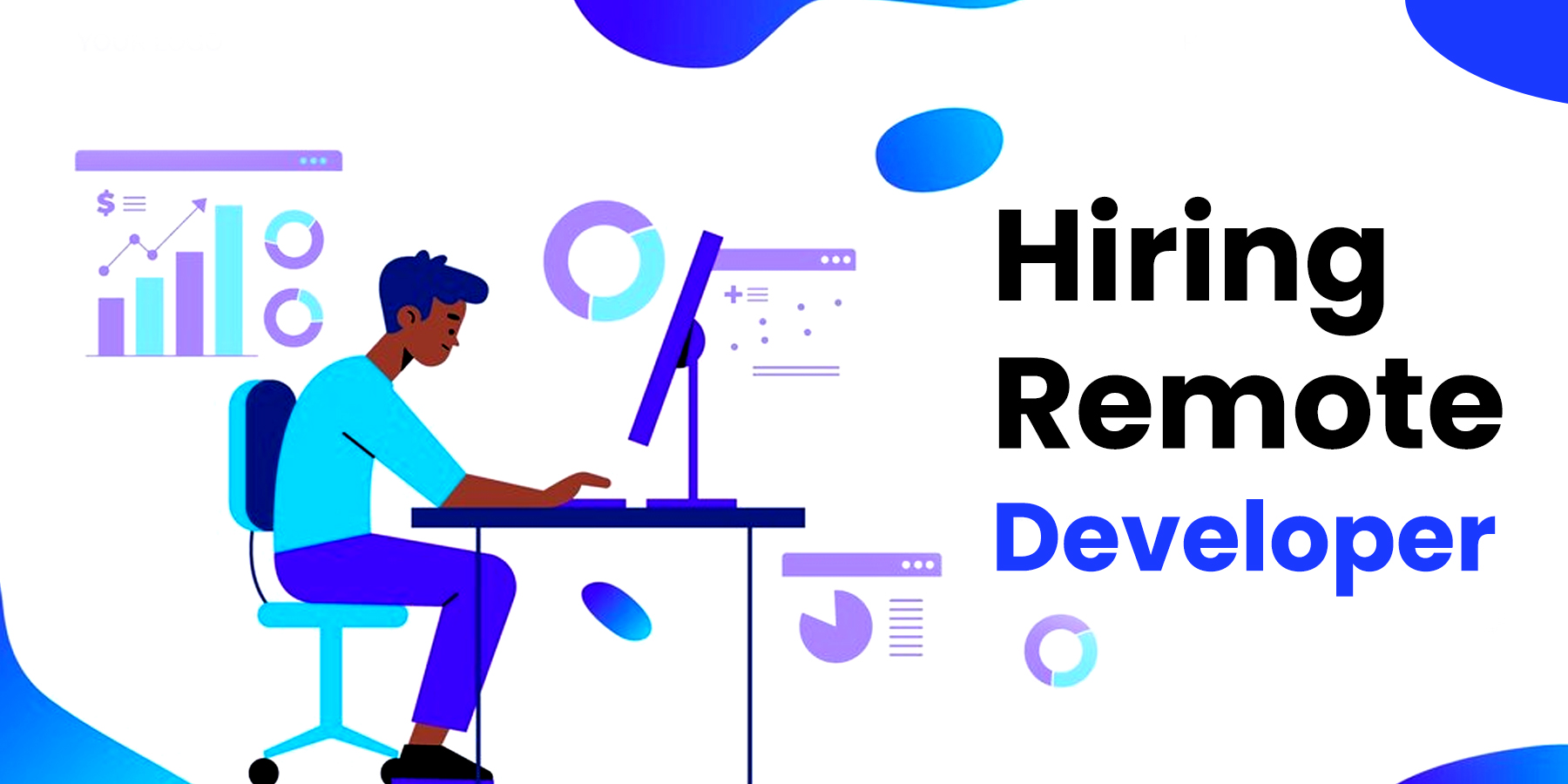
Are you considering hiring a team of remote developers for your business? One of the most significant benefits of working with remote developers is tapping into a larger talent pool. However, it can also be challenging to assess the skills and abilities of a developer you have yet to meet in person. In this blog post, we’ll explore X assessments you should give applicants to ensure that you’re hiring the right person for the job.
Using these assessments, you’ll be able to evaluate the technical skills, communication abilities, and fit with your team of remote developers and make an informed decision about whether to hire them. These assessment techniques will be helpful whether you’re a small startup or a large enterprise looking to hire a dedicated remote development team or individual remote programmers.
Overview of the Benefits of Hiring a Remote Developer
There are several benefits when you hire remote developers, including
- Access to a broader pool of talent: By hiring a remote developer, you can tap into a global pool of talent and find the best person for the job, regardless of their location.
- Cost savings: Hiring a remote developer can be more cost-effective than hiring someone in-person, as you don’t have to pay for relocation or provide them with office space.
- Increased productivity: Remote developers often have more flexibility in their work schedule, leading to increased productivity and output.
- Improved work-life balance: Remote work can offer employees a better work-life balance, leading to higher job satisfaction and retention rates.
- Reduced overhead costs: With remote work, you don’t have to worry about maintaining an office space or providing equipment and supplies for employees.
- Greater flexibility: Working with a remote developer allows you to be more flexible regarding project scope and timeline, as you’re not limited to working with developers in a specific location.
1. Technical Assessments
Technical assessments are common for employers looking to hire remote developers, remote development teams, or hire dedicated remote developers to evaluate a job candidate’s technical skills, particularly in software development. There are a few different approaches that may be used in a technical assessment:
Testing the Developer’s Knowledge of Specific Programming Languages or Technologies
This could involve a written or oral test where the candidate is asked questions about their understanding of a particular programming language or technology. The questions cover syntax, shared libraries and frameworks, and design patterns. This assessment is beneficial when hiring remote developers, as it allows employers to assess the skills of remote programmers and development teams who they may have yet to meet in person.
Assigning a Coding Challenge or Project
Another approach is giving the candidate a specific coding task or project. This could be a minor problem that the candidate is asked to solve quickly, or it could be a larger project that takes several hours or days to complete. This allows the employer to see how the candidate approaches problem-solving and how well they can apply their technical skills in a practical setting. This approach is handy when hiring a dedicated remote development team or individual remote developers for hire, as it allows employers to assess the capabilities of these remote developers and ensure that they have the necessary skills to complete the project.
Overall, technical assessments are a valuable tool for employers looking to hire remote developers, remote development teams, or dedicated remote developers. By using these assessments, employers can assess the technical skills of job candidates and ensure that they have the knowledge and abilities needed to be successful in the role.
2. Communication Assessments
Communication assessments evaluate a job candidate’s communication skills, particularly in software development, where communication is crucial for project collaboration. Here are a few points to consider regarding communication assessments:
- Evaluating the developer’s written and verbal communication skills: This could involve analyzing the candidate’s writing style, grammar, and ability to articulate their thoughts and ideas clearly. In an oral communication assessment, the candidate might be asked to present a technical topic to a group or converse with a panel of evaluators.
- Assessing their ability to work effectively in a remote team: Many software development teams operate remotely, so candidates need strong communication skills to work effectively with team members in different parts of the world. This might involve evaluating the candidate’s ability to use communication tools such as Slack or Zoom and convey their thoughts and ideas in a virtual setting.
3. Team Fit Assessments
Use team fit assessments to evaluate whether a job candidate would do a specific team or company culture. Regarding team fit assessments, here are a few points to consider:
- Assessing the developer’s personality and work style: This could involve a personality test or a series of questions designed to reveal the candidate’s characteristics and habits. For example, the assessment might seek to understand the candidate’s risk-taking level, preferred work environment, or communication style.
- Evaluating their ability to work well with other team members: In addition to understanding the candidate’s personality and work style, it’s also essential to assess their ability to work effectively with others. This might involve asking questions about the candidate’s past experiences working in a team setting or giving them a scenario-based exercise where they have to work with a simulated team.
Other Considerations
When you hire remote developers, it’s essential to use multiple assessment methods to get a well-rounded understanding of the candidate’s skills and abilities. Here are a few reasons why this is important:
Different Assessment Methods Can Provide Complementary Information
Each has its strengths and weaknesses, and using multiple methods gives you a complete picture of the candidate. For example, a technical assessment might reveal the candidate’s technical skills, while a communication assessment could provide insight into their ability to work effectively with a team. This is especially important when you hire remote developers, as it can be more challenging to assess their skills and abilities when you’re not working in the exact location.
It Can Help Reduce Bias
Using multiple assessment methods can help reduce bias in the hiring process. For example, relying solely on a technical assessment might favor strong test-takers, while using only a team fit assessment might prefer candidates who are good at presenting themselves in an interview. You can get a more objective view of the candidate using multiple methods.
It Can Increase the Reliability of the Hiring Decision
Using multiple assessment methods can increase the reliability of the hiring decision because it allows you to gather more evidence about the candidate’s skills and abilities. This can be especially useful when hiring a remote development team or dedicated remote developers, as it can be more challenging to assess their capabilities without meeting them in person. Using various methods, you can make a more informed decision about whether the candidate is the right fit for the role.
In addition to using multiple assessment methods, it’s essential to consider references and past work experience when hiring a remote developer. Speaking with past colleagues or supervisors can provide valuable insight into the candidate’s work style and ability to deliver high-quality work.
Similarly, reviewing the candidate’s past projects and accomplishments can give you a sense of their capabilities and the type of work they can produce. This is important if you hire remote developers or a remote development team. By taking a comprehensive approach to hiring, you can find the best fit for your team and ensure that you’re getting the most out of your remote developers.
Conclusion
Hiring a remote developer is a complex process that requires careful consideration of a candidate’s technical skills, communication abilities, and fit with the team and company culture. To ensure that you make the best hiring decision, it’s essential to use various assessment methods to gather as much information as possible about the candidate. Some assessments you might consider when hiring a remote developer include technical assessments, communication assessments, and team fit assessments.
By combining these methods, you can understand the candidate’s skills and abilities, which will help you make an informed hiring decision. This is especially important when hiring a remote development team or dedicated remote developers, as it can be more challenging to assess their capabilities without meeting them in person.
Additionally, it’s essential to consider references and past work experience as part of the hiring process. These can provide valuable insight into the candidate’s work style and ability to deliver high-quality work. This is important whether you’re hiring an individual remote developer or a remote development team. By taking a comprehensive approach to hiring, you can find the best fit for your team and ensure that you’re getting the most out of your remote developers.
Andrew Gray
Andrew Gray is the Senior Operations Manager at Vserve Amazon Listing Services, a position he's held since 2021. He is renowned for operational excellence, leading teams to achieve sales growth and enhanced customer service. Andrew's role is crucial in optimizing the company's operations and maintaining its reputation for efficient back-office solutions.


 How Much Should You Pay a Graphic Designer?
How Much Should You Pay a Graphic Designer? How to Choose Between a Local and Remote Web Design Team?
How to Choose Between a Local and Remote Web Design Team?